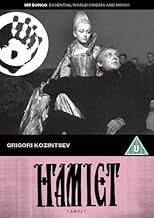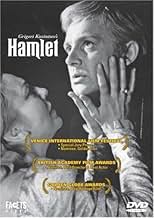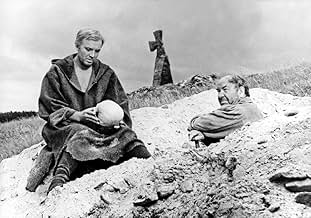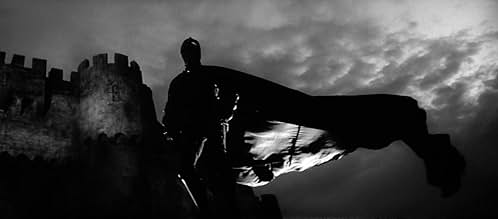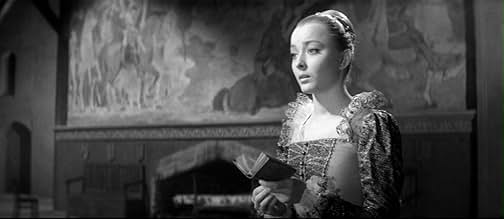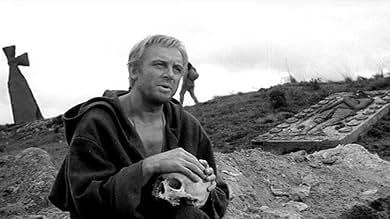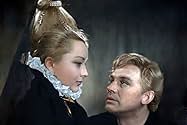Cinematographically, this looks fantastic. That might be the most immediately striking thing about this grand Soviet adaptation of Shakespeare's play. The wide sweeping shots the castle, this cliffs, and and the story sea at this Estonian Elsinore as they are swarmed by medieval courtesans and armies is incredibly impressive. The scenes with the ghost of Old Hamlet may be some of the most simultaneously grand and spooky I have seen.
Though in some senses (such as costuming) a traditional Hamlet, this film, perhaps somewhat by virtue of being an adaptation in translation, has a outsider viewpoint that allows to to take liberties with sequence and setting while maintain a feeling of fealty. And this lends itself to the broad-scoped cinematic feel. We first see Hamlet upon his return to Denamrk, we follow him on the ship and on the way back. What changes there are only help suit the material to them medium of film.
Innokentiy Smoktunovskiy is a very good Hamlet and worth of the role. His baseline is quiet and solemn glumness (even for a Hamlet), which makes it the more impressive and disturbing when in his passion or "madness" he is furious or energetic and glib. He is complimented by a great Claudius and a fascinating performance by Anastasiya Vertinskaya as Ophelia, who makes scenes almost difficult to watch with how earnestly she plays having been driven mad.
The film is blessed to have music by the great composer Dmitri Shostakovich, who demonstrates a subtle and masterful hand with film scoring by writing music that doe snot intrude on the film but greatly enhances that mood and really seems to fit the windswept crags of the setting. The translation is by Boris Pasternak, who from while I can incompletely understand seems to eschew completely literalness for a more terse poetry of his own -- a debatable choice but perhaps best for the purposes of film.
In all certainly a huge achievement that can stand among the best of the many screen versions of Hamlet.

